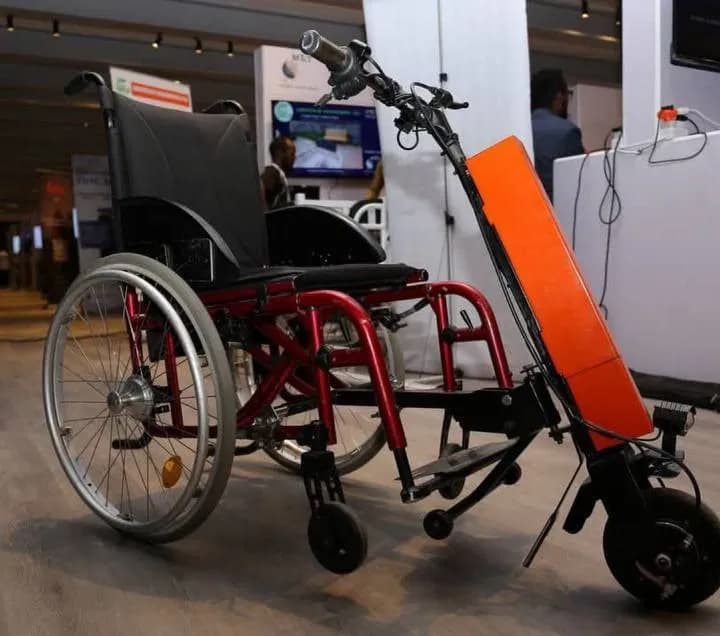Progress for 0 ad
Progress for 1 ad
Progress for 2 ad
Progress for 3 ad
Progress for 4 ad
Progress for 5 ad


Ana Mulatu
Addis Ababa, Ethiopia

In Ethiopia, where more than 12% of adults are estimated to experience some form of functional difficulties and nearly 4% struggle specifically with mobility, access to assistive devices remains scarce and poorly adapted to local conditions. Most wheelchairs and mobility aids in the country are either donated by aid organizations or imported at a high cost. These options are not only expensive but also often rely on outdated technology and lack local repair infrastructure. One startup is trying to crack this underserved market through locally built electric-powered mobility devices.
Teshome Girma started working on what would later be Greentech Engineering while he was a computer science student at the Addis Ababa Institute of Technology (AAIT). He recalls meeting several people with physical disabilities who relied on faulty imported wheelchairs.
“If the wheelchairs stopped working, there was no way to repair them or find spare parts,” Teshome told Shega. “I wanted to build something locally.”
After two years, his labors would bear fruit in the form of three devices: a universal electric wheelchair attachment, an electric tricycle, and a patient transfer chair.
The wheelchair attachment is a 15 Kg device that can be fastened onto any manual wheelchair and convert it to an electric-powered option that can travel above 40 km on a full charge. It costs about 30,000 Birr less than most imported wheelchairs, while it can move several times faster.
Greentech’s electric tricycle is made of a hub motor, controller, a lithium-ion battery, and brakes that are fitted onto locally made frames. Teshome says the price of the inputs becomes inflated once it crosses Ethiopia due to high import duties and transportation costs.
“The components are not among the list of items privy to the EV tariff reduction scheme,” he laments.
Teshome explains that they opted for lithium-ion batteries for reduced environmental harm, an easier time charging, and overall safety. The company’s third product, a patient transfer chair, was reverse-engineered from foreign models and adapted to the dimensions and operational needs of Ethiopian hospitals.
Nonetheless, the two-year-old start-up with four staff members has been struggling to sell its products due to a web of bureaucratic, licensing, and financial challenges.
“Acquiring a patent has taken us over 7 months,” Teshome says.
The startup established with bootstrapped capital remains undeterred by the challenges and looks to scale operations. With plans to raise 10 million Birr, Greentech has been reaching out to public and private institutions in search of funding and new land.
👏
😂
❤️
😲
😠

Ana Mulatu
Ana Mulatu is an intern at Shega Media and a third-year student at Addis Ababa University. She is passionate about startups and works to help them increase their digital presence.
Your Email Address Will Not Be Published. Required Fields Are Marked *